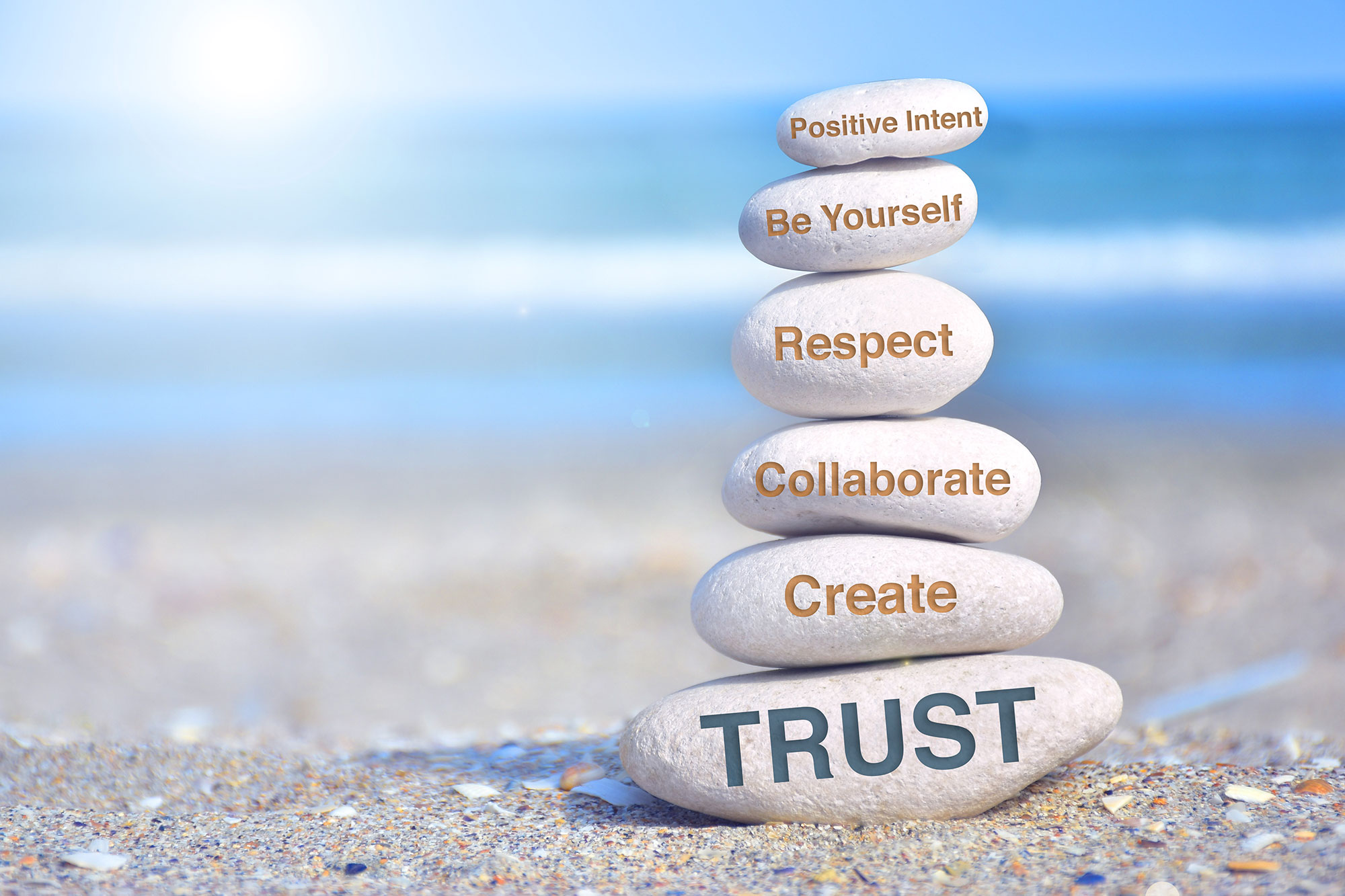
Trust is essential for any relationship to thrive, be it professional or personal. What is becoming clear, however, is how important trust is for teams to work together to achieve shared outcomes. The impact of trust is well researched. We know that trust, psychological safety and curiosity are strong and positive emotions. These are the emotions that help open our minds and broaden our thinking to solve complex problems. It’s emotions like these that also help us to build collaborative relationships with others. Commercially too, there is a strong case for building trust in and across teams. Stephen Covey refers to two outcomes of trust in his book The Speed of Trust: one relates to the speed of work, and the other relates to the cost of doing the work. Covey’s simple formula says that as the level of trust increases, the speed of delivery increases while the cost of doing work goes down. Equally, with lower levels of trust, work takes longer to complete and cost increases. The impact of trust in this sense is often seen in organisational change programmes.: change is mobilised more effectively, and with less resistance, where high levels of trust prevail.
How does trust impact team performance?
1.Positive intent.
In a high trust team environment, people know that their colleagues think and act in the best interest of others. They don’t feel the need to be guarded: instead, they can be genuine and open with each other. They don’t have to feel protective around others, nor waste time and energy second-guessing their intentions and motives. A positive intent mindset creates both an engaging and productive work environment.
2. Vulnerability.
With trust, team members are more likely to ask for help and help others. In a trust-rich team, people feel comfortable acknowledging and sharing not only their strengths but also their challenges. What this means for teams is that they will support each other, learn and grow together.
3. Diversity and creativity.
High trust teams are comfortable with opposing opinions, different views and divergent thinking. Everyone in the team, irrespective of who they are, is encouraged to voice their opinion, challenge others’ opinions and stretch the boundaries. This can affect a real and positive difference to team dynamics and innovative problem-solving.
4. Collaboration.
How a team deals with conflict is another telling measure of trust: members of high trust teams don’t avoid the tough issues or situations. Alternatively, they take a collaborative approach to resolving them. In teams like these, it’s not about competition; it’s about courageous dialogue and being curious about all options that achieve the best outcomes.
5. Ownership.
High-performing teams have clarity of purpose, understand their collective goals and responsibilities. With trust, individuals assume accountability for results and feel comfortable giving and receiving feedback about performance and contribution to the team. In summary, trust is the cornerstone of success. It creates an environment where employees feel valued, connected, energised, appreciated, courageous and inspired to be the best versions of themselves.
References:
1. Patrick Lencioni: The Five Behaviours of a Cohesive Team
2. Barbara Fredrickson, University of North Carolina. Quoted in HBR’s High-Performing Teams
Need Psychological Safety. Here’s How to Create It.
3. The Speed of Trust. Stephen M.R. Covey.

